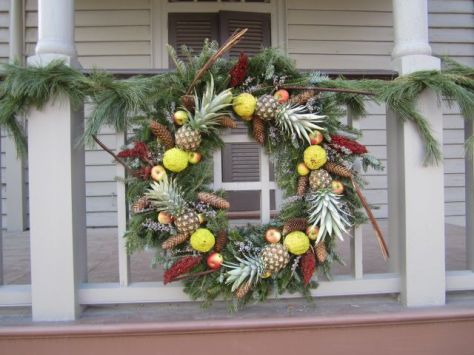
I have had several of you ask me about how true are the wreath decorations of Colonial Williamsburg. So true to form, I did some research to confirm their authenticity. In my research I came across some interesting information on customs and traditions of Christmas within the colonial period.
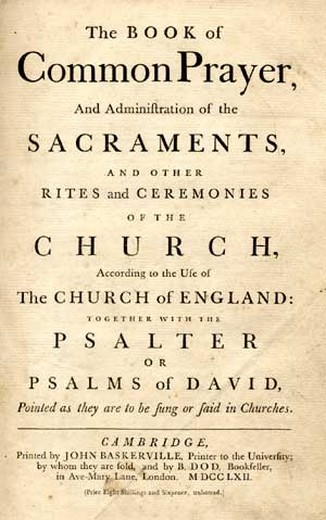
During the colonial period in Virginia, the Christmas season followed a four week period of Advent. Most Virginians were devout Anglicans and they would have observed a period of fasting, prayers and reflection. They would have read daily from the Book of Common Prayer. Fasting would have been only one full meal, which generally would have been meatless during the day. After the four weeks, they would end with a Christmas meal and the start of the Christmas season.
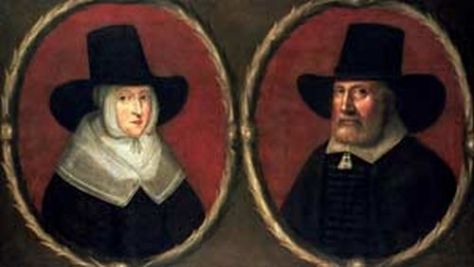
Puritans
Did you know that most of New England didn’t celebrate Christmas during the colonial period? Christmas was outlawed in most of New England because Puritans and Protestants disliked the celebration and likened it to pagan rituals. In 1659 Massachusetts if you were found observing the season in any way, including feasting, you would have been fined five shillings per offense. During the same time, in Connecticut, you were prohibited from reading the Book of Common Prayer, keeping of Christmas and Saints Day, making mince pies, playing cards or performing on any musical instruments. This didn’t change until the early nineteenth century. The Burgermeister Meisterburger from the animated Christmas show “Santa Claus is Comin to Town” would have loved living here during that time!
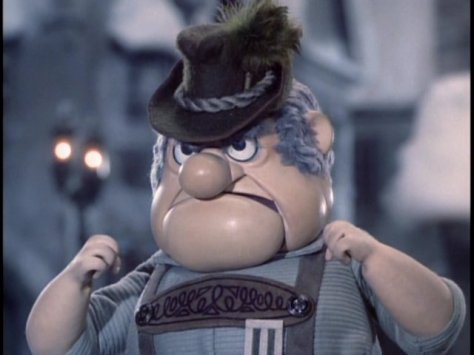
Burgermester Mesterburger from “Santa Claus is Comin’ to Town”
The Christmas season was a twelve day event during the colonial period. It would have started on December 25th (Christmas Day) and would end on January 6th. During this time, you would have great feasts and meal, attended parties, gone to visit others and would have received guest to your own home.
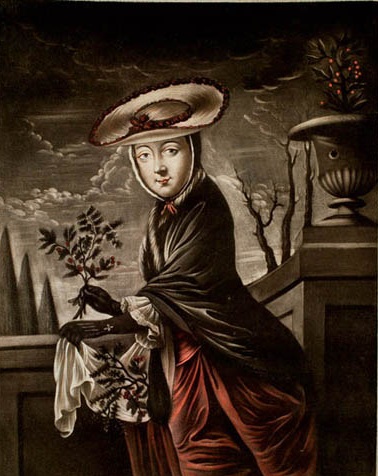
Christmas decorations were a common sight during the colonial period. However, those used today in Colonial Williamsburg are inaccurate recreation of the eighteenth century customs and materials. Oranges, lemons and limes would never have been wasted on any form of decorations. Pineapples were considered a precious commodity and you would have never seen them used. What were used were garlands of holly, ivy, mountain laurel, berries, mistletoe or whatever natural materials were available. Lavender, rose petals and pungent herbs like rosemary and bay set the holiday scent for the season. Also during the colonial period, only one or two rooms in the home would have been decorated. The church was general more decorated than the homes. The door would have had decoration, but no Christmas tree. Most Christmas trees didn’t make their debut until the nineteenth century.
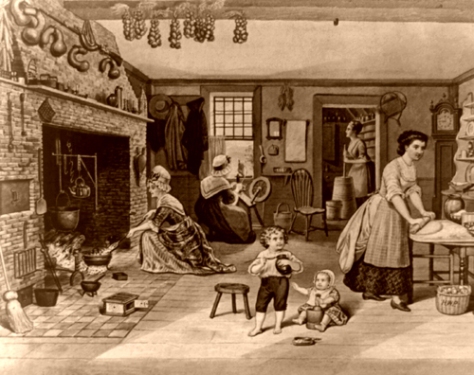
Christmas meals would have been fresh meats such as beef, goose, ham and turkey. They would have also had fish, oysters, mincemeat pies and brandied peaches. In the well to do households you would have found wines, brandy, rum punches and other alcoholic beverages.
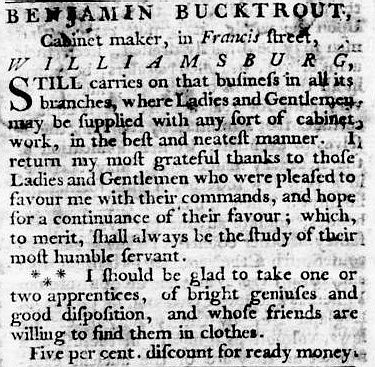
Christmas gift giving during the colonial period was also a little different than what we know today. Believe it or not but eighteenth century shopkeepers placed printed ads noting items appropriate as holiday gifts. But there wasn’t a special day that it was given on. No real Christmas morning of unwrapping presents. Gift giving was done from masters or parents to dependents such as children, servants, apprentices and slaves. But the dependents didn’t return the gifts. This tradition didn’t come about until later and was a new American tradition. Santa Claus was also an American invention although European countries had their own version of him. In colonial times, Santa Claus or Father Christmas didn’t visit the children as he does today.
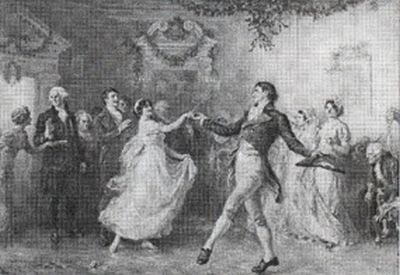
Christmas carols and hymns were very popular during the colonial period. During the Christmas season there would have been lots of dancing and singing at the many parties. Hymns were always sung, but beloved songs such as “Joy to the World”, “The First Noel” and “God Rest You Merry Gentlemen” were among the songs at parties. However no Christmas carols were ever sung at church.
Our present day customs have been derived from the many immigrants who settled this country with most of our traditions coming out of the nineteenth century. But this look back at the colonial period, when things were truly more simple I hope will give you a chance to really embrace the Christmas season and focus on the true meaning of the time.

Really interesting information! Thanks for sharing it, and happy holidays.
You are so welcome! We hope you will join us on this wonderful journey opening this historic plantation as a bed and breakfast. Merry Christmas from Brett, Michelle, Hurley and Belle Grove Plantation! Thank you!
Thanks for giving us this look back. Very interesting!
You are so welcome! We enjoying history and love to share what we find.
I liked the look back too and your illustrations were great! I still have trouble wasting food as a decoration instead of an edible, although I’m good if it serves both purposes.
Thank you. It is so much fun finding out where traditions come from. But I have to say I still like the fruit on the wreaths.
The season seems to have been celebrated before it was Christian and it seems to be returning to that if enough politicized grinches have their way. Let’s put lumps of coal in all their stockings…
And keep Christmas.
Haha! I agree! Thank you!
This was fascinating. Thank you for all the research, and for the story.
You are so welcome! We really enjoy doing the research and sharing it.
I enjoyed this post. Kudos for your research.
Thank you! We enjoyed sharing it with you!
Excellent
Thank you!
Reblogged this on artybanana's Blog.
Thank you so much for sharing us with your readers! It means so much to us!
A fascinating and informative post. Thanks for that
Thank you! We are glad you enjoyed it!
Reblogged this on Jericho777's Blog.
Thank you so much for sharing us with your readers! It means so much to us!
Thanks for the informative tour of your web-site
You are so welcome! We hope you will join us as we work to bring this historic plantation back to life. Thank you for stopping by!
Fabulous Historical Look Back! Wow! Thank you!
You are so welcome! Thank you for stopping by!
Thanks for visiting House of Bedlam – Have a Happy New Year!
You are so welcome! We hope to see more of your blog in the future! Thank you for stopping by ours! Happy New Year from Belle Grove Plantation!
Thanks for the compliment. My website is only a way to remember and share recipes I like. Yours is much more professional. Just curious how you found me. So far I have only given my address to friends and family but perhaps wordpress has made it accessible through searches.
I am a pharmacist by profession (semi-retired at 67), I live in Calgary Alberta Canada, and cooking is one of my favorite creative outlets.
Joan
Nice to meet you Joan! I am Michelle. I found you through a search of wordpress. I am always looking for new ideas when it comes to food. I like to take recipes and make them my own. I made some really good jalapeno cheddar cheese crackers last night that I found on one of the blogs I found. Now I am going to use them in our plantation during our wine and cheese receptions in the evening. I am sure I will find something on yours too. Thank you for stopping by our blog too! We hope you will join us on this wonderful journey opening our historic plantation.
Thank you for stopping by! love a look back in time while living it !
Thank you!
Thanks, your blog is a bit different than the ones I see. Have a happy 12 days of Christmas!
Thank you! We hope you are having a great 12 days yourself! 😉
Thank you for the history on Colonial Christmas. I learned a lot!
You are so welcome! We just love history and love sharing our finds!
Thanks for visiting Kaffeeklatsch! I was so excited to see who it was, because, you see, my husband’s family and I visited your plantation when we were stationed at Langley AFB a few years ago! We are currently in Southern Turkey, and will soon be moving to Baltimore, but it just tickled me to see a familiar place show up on our radar, especially since we are currently half-way round the world. Hope you had a wonderful holiday!
You are so welcome and I am so glad we found each other! I am not sure if you have seen our plantation. It hasn’t been open to the public before. We are just south of Fredericksburg. There is a second Belle Grove in Middletown just south of Winchester. That Belle Grove was built by Isaac Hite and his wife Nelly Madison Hite, sister of James Madison. People get them confused all the time. But we hope someday you might be able to see our Belle Grove. We are just 90 miles south of Baltimore. Have a wonderful New Year!
Oh, well, I did not realize there were two. Now we are going to *have* to come down and see you 🙂
Aw, I’m sorry. I know a lot of people get them confused, but if you “have” to come see us, we know you won’t be disappointed!
We will definitely come down, for sure. I love the Fredericksburg area.
We look forward to seeing you!
Thanks for continuing to visit my blog. This post was a timely look into our collective past!
You are so welcome! We hope to see more of your blog! Thank you so much!
i knew very little about Christmas. It added much to my knowledge. very informative. Thanks.
And yeah Happy New year. May this year bring much more success and satisfaction.
Thank you so much! We hope this new year will be a blessing to you as well! We are glad that this post has helped you understand a lot more about Christmas.
Thank you for continuing to visit my blog. Christmas must be an extraordinary time for you at Belle grove. Happy New Year/.
You are so welcome! We didn’t get to spend Christmas or New Years at the plantation, but next year we will! Thank you!
Very interesting post. I’m from New England and I did not know how harshly it was treated here!
I know I was surprised too! Who knew?
Very informative post with awesome pictures: well done!
Thank you so much! It was a lot of fun researching it.
At the same time (mid 17th C) Britain itself was just coming out of ten years of extreme puritanism under Oliver Cromwell (the first and only time Britain was ever a Republic!) when Christmas was actually outlawed.
An interesting article. Thank you.
Thank you! I never knew that! Wow! Thank you for updating me too!
Burgermester is really ticked-off. Good article.
Blessings ~ Maxi
Thank you! Yes, he was not too happy.
I LOVE that pineapple wreath in the top picture. Thanks for the great info.
You are so welcome! It was fun gathering the pictures and information! Thank you for stopping by!
Very interesting post, and a fascinating look back at how Christmas was celebrated in a simpler time.
Thank you! It was a lot of fun writing it.
With 171 replies, you hardly need my input ! Just wanted to say thanks for liking/visiting. Very cool entry here (I lived in NC for many, many years, so even though I am a Yankee (a distinction I did not know was still made !), I am also an honorary Rebel. Following you 🙂
Diana
Thank you Diana! I really enjoyed researching this one. And don’t worry, I married a Yankee. He can cook grits now. 😉 We look forward to seeing more of your blog too!
Very cool! I love social history, and enjoy the distinctions between regions of Canada, where I come from, and likewise regions of the US. (And it’s ages since I’ve thought about the Burgermeister; thanks for the blast from the past!) 🙂
Thank you! It was really fun doing this one. And Brett loves the Burgermeister too!
Fascinating, I didn’t know about Christmas being illegal in MA. they don’t tell you that at Plymoth Plantation.
You know I didn’t know until I did the research. Thank you!
Quite Fascinating! I had no idea that they banished Christmas!
Thank you! We didn’t either until we did the research!
Any post with the Meisterburgher is a great post. Excellent information. I live in New England and had some inkling of how bad it was up here during the Colonial period, but I didn’t know how bad. Thanks for the information.
You are so welcome! We didn’t know it at all so we were so surprised!
Good information. Thanks for posting it.
You are so welcome! Thank you for stopping by!
[…] Original article found at: https://virginiaplantation.wordpress.com/2012/12/08/christmas-during-colonial-america/ […]
Thank you so much for sharing our blog with your readers! We really appreciate it!
[…] I have had several of you ask me about how true are the wreath decorations of Colonial Williamsburg. So true to form, I did some research to confirm their authenticity. In my research I came across some interesting information … […]
Thank you so much for sharing our blog with your readers! We really appreciate it!
[…] https://virginiaplantation.wordpress.com/2012/12/08/christmas-during-colonial-america/ […]
Thank you for sharing our blog with your readers! We hope you will visit our new blog too!
Reblogged this on THE BLATHER BUBBLE and commented:
I had to reblog this! The Belle Grove Plantation Bed and Breakfast is a ” MUST Do” on my bucket list.I just don’t think I could do a post about this beautiful Bed and Breakfast that would do it justice. Such beauty and history is too awesome to pass up!
Thank you for sharing!!
Thank you for liking my paintings, especially Puppy Dreams – one of my favorites. I bet it reminds you of Hurley. I love painting dogs and Goldens always seem to be smiling. Your plantation is lovely. I hope you have a happy, prosperous New Year.
It truly does. We love our Golden and love seeing others too! Thank you! Same to you!
Were the slaves dependent upon the master, or the master upon the slaves?
No mention of Native Americans who were killed and displaced?
You know that is a very good question. I hope in the future to do more research on our slave population here at Belle Grove Plantation. We have uncovered many names of slaves and will be working to create a memorial for them. I do know we had Native Americans here, but it wasn’t until just a couple months ago that we found pottery from them. So I wasn’t sure if they lived here or were just passing through to the next village. More on both to come!